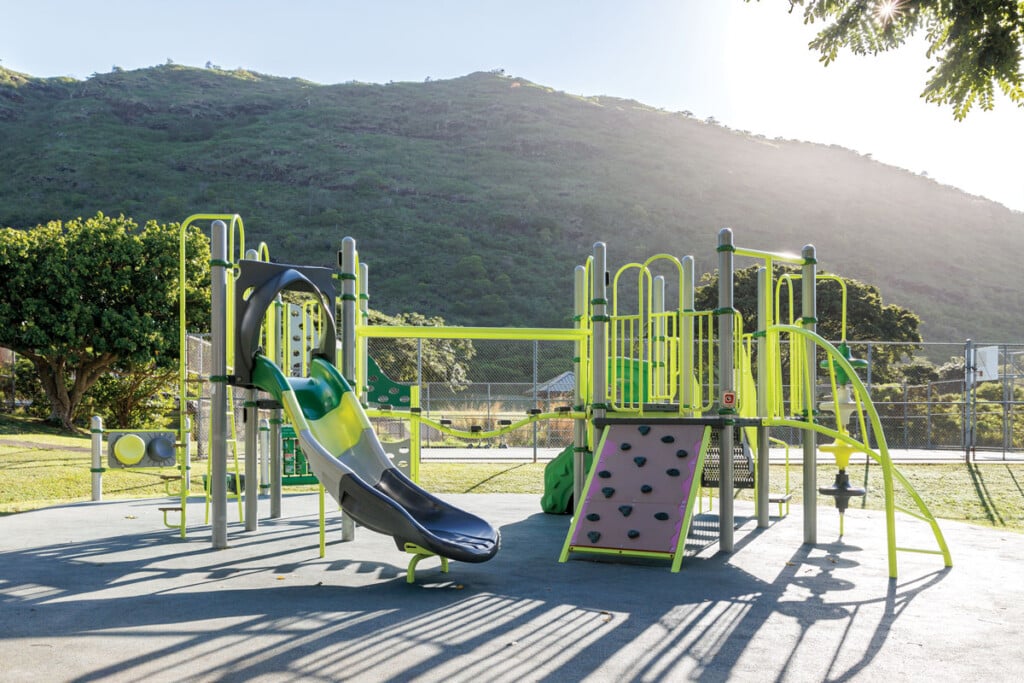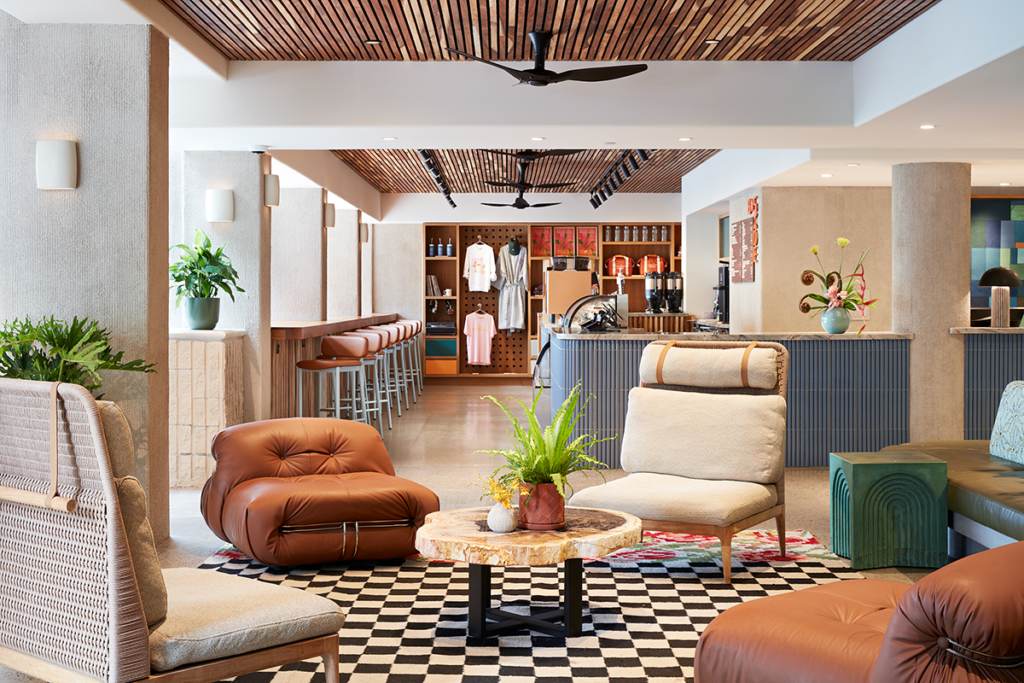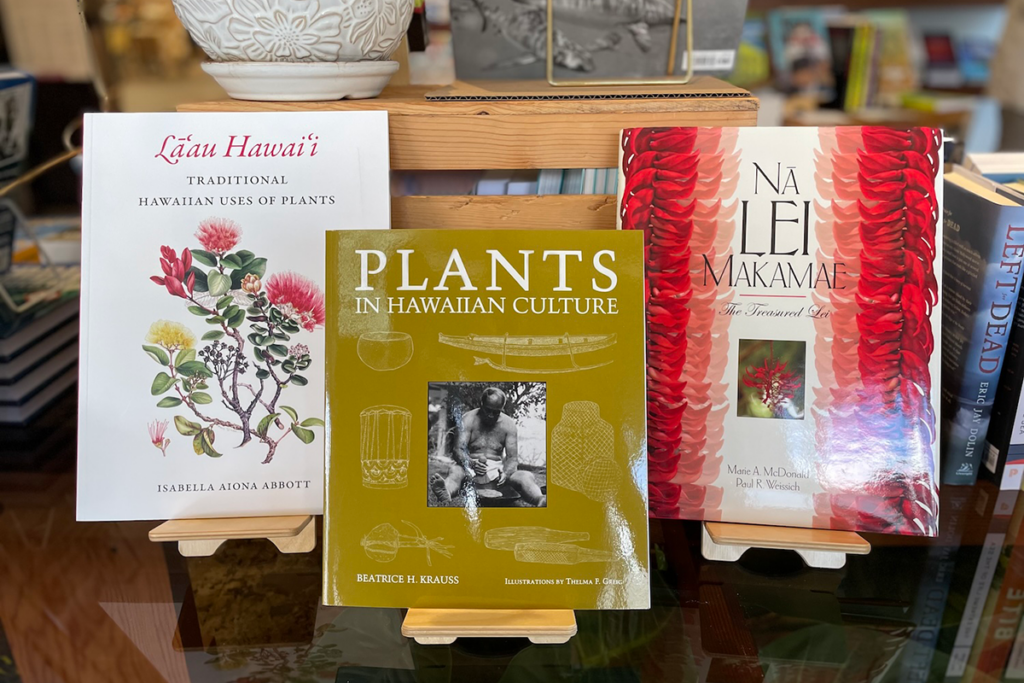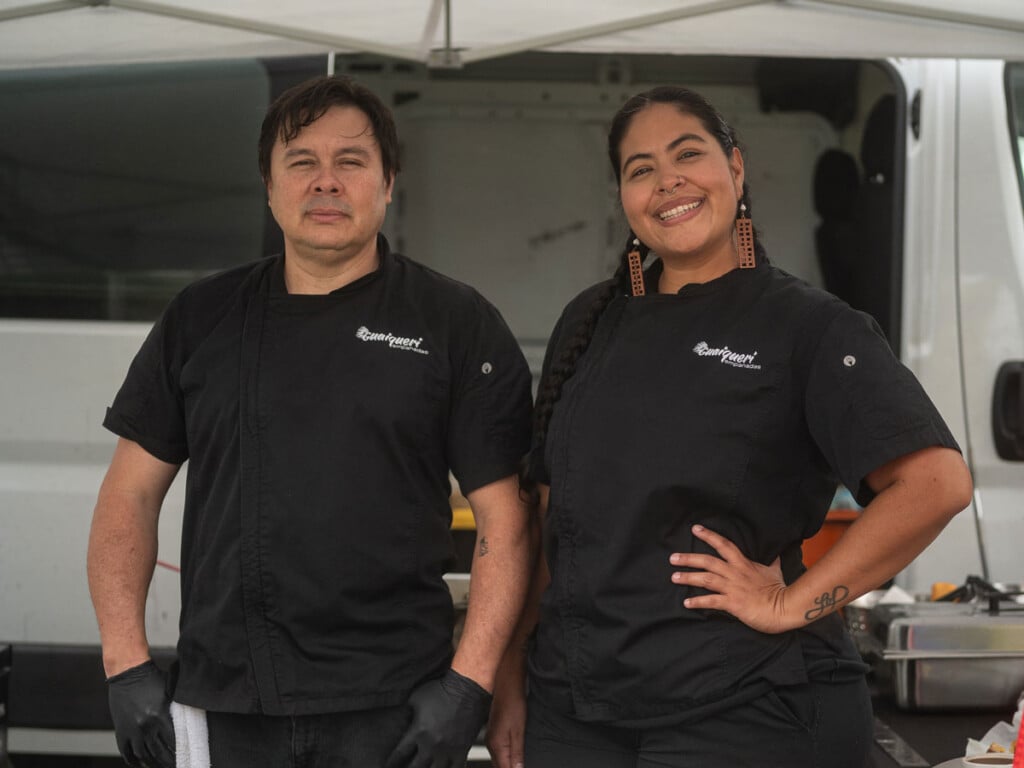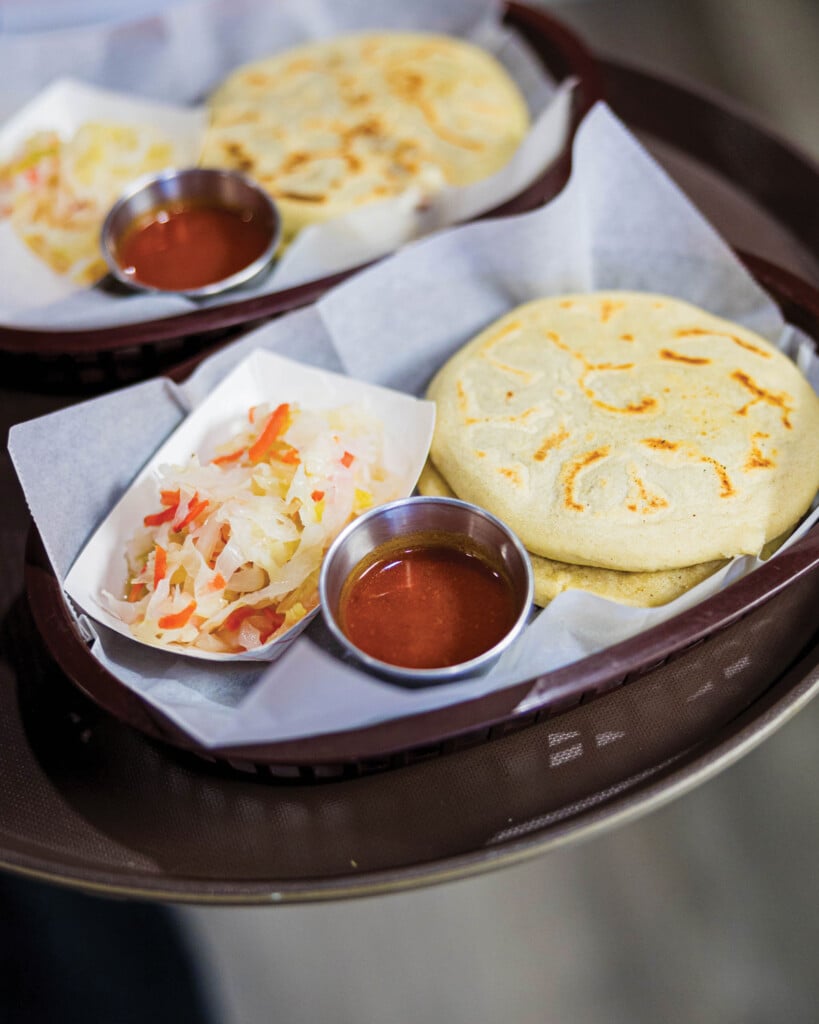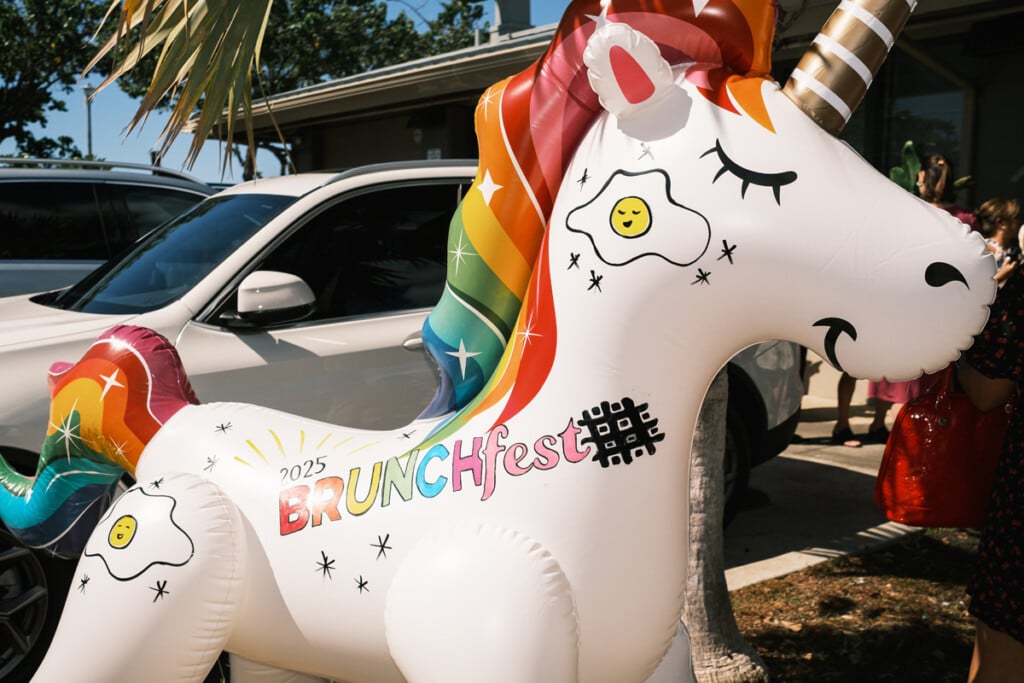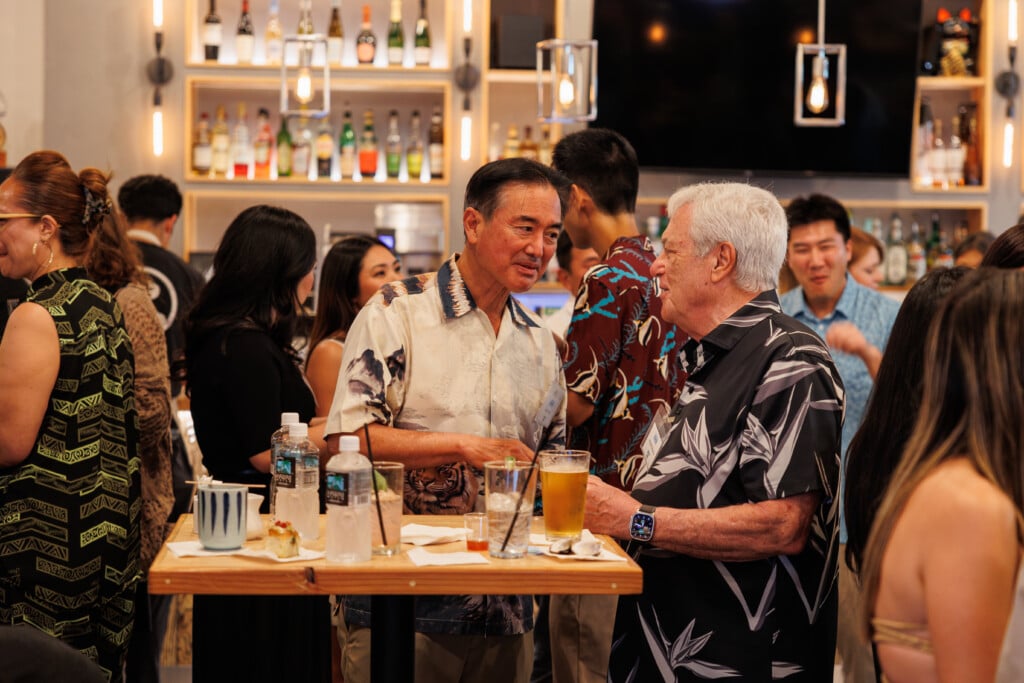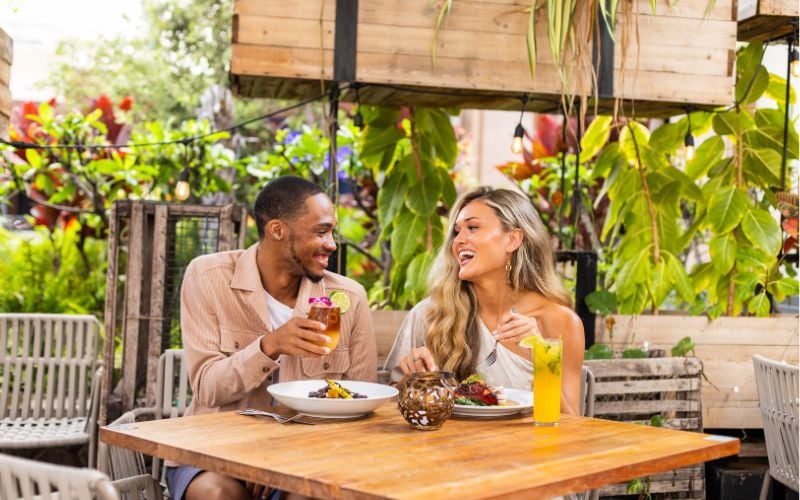Our Guide to Camping on O‘ahu
We break down all the info you need about camping on O‘ahu: where to go, what to bring, how to set up, how to level up and more.
Editor’s Note: This article was originally published in Aug. 2022 and has since been updated with the latest information.
It’s ultimate summer vibes when you’ve slept outside, eaten a melty marshmallow off a stick and woken up smelling like a campfire. So we’ve rounded up some key information and tips for camping on O‘ahu (which can be applied to other campsites in Hawai‘i, too).
Note: Please mālama ‘āina to preserve and protect these beautiful campsites and trails. Remember to do your research, take out whatever you take in and respect the plants and animals. For more information, visit the Department of Land and Resources’ Hiking in Hawai‘i and Nā Ala Hele Trail and Access pages.
Click to the information you want to explore:

Photo: Getty Images
Campsites
The Honolulu Department of Parks and Recreation (DPR) currently manages more than 200 campsites at more than 15 campgrounds across O‘ahu. At these campsites, you can have up to 10 people in no more than three camping tents. Dogs and alcohol are not allowed, and motor vehicles are not allowed on the beach. Reservations become available at 5 p.m. two weeks in advance and can be made online.
Bellows Field Beach Park (expected to reopen on Friday, Aug. 30, 2024, after closing for turtle nesting season)
41-043 Kalaniana‘ole Highway
Waimānalo
50 campsites
Hau‘ula Beach Park
54- 135 Kamehameha Highway
Hau‘ula
8 campsites
Hūnānāniho (formerly known as Waimānalo Bay Beach Park)
41-043 Aloiloi St.
Waimānalo
10 campsites
Kahua Kuou (Ho‘omaluhia)
45-680 Luluku Road
Kāne‘ohe
8 campsites
Kahua Lehua (Ho‘omaluhia)
45-680 Luluku Road
Kāne‘ohe
5 campsites
Kahua Nui-Makai (Ho‘omaluhia)
45-680 Luluku Road
Kāne‘ohe
15 campsites
Bill and Peggy Paty Kaiaka Bay Beach Park
66-449 Hale‘iwa Road
Hale‘iwa
5 campsites
Kalaeloa Beach Park
66-449 Eisenhower Road
‘Ewa Beach
13 campsites
Kalaniana‘ole Beach Park
89-269 Farrington Highway
Wai‘anae
12 campsites
Kea‘au Beach Park
83-431 Farrington Highway
Wai‘anae
25 campsites
Kokololio Beach Park
55-017 Kamehameha Highway
Lā‘ie
5 campsites
Kualoa A Beach Park (closed during summer, reopens Labor Day weekend)
49-479 Kamehameha Highway
Kāne‘ohe
7 campsites
Kualoa B Beach Park
49-479 Kamehameha Highway
Kāne‘ohe
14 campsites
Lualualei Beach Park #1
86-221 Farrington Highway
Wai‘anae
6 campsites
Mā‘ili Beach Park
87-021 Farrington Highway
Wai‘anae
14 campsites
Swanzy Beach Park
51-369 Kamehameha Highway
Ka‘a‘awa
9 campsites
Waimānalo Beach Park
41-741 Kalaniana‘ole Highway
Waimānalo
10 campsites
The State of Hawai‘i’s Department of Land and Natural Resources (DLNR) also manages popular campsites on O‘ahu. You can apply for permits no more than 30 days in advance. Permits cost $20 per night per campsite for Hawai‘i residents and $30 per night per campsite for nonresidents. Purchase O‘ahu camping permits online or in person at District Offices.
Ahupuaʻa ʻO Kahana State Park
52-222 Kamehameha Highway
Ka‘a‘awa
10 campsites
Mālaekahana State Recreation Area
56-020 Kamehameha Highway
Lā‘ie
37 campsites
Keaīwa Heiau State Recreation Area
99-1849 ‘Aiea Heights Drive
‘Aiea
8 campsites
Sand Island State Recreation Area
1499 Sand Island Parkway
Honolulu

The view from Mālaekahana. Photo: Katrina Valcourt
Tips to Prepare for an O‘ahu Camping Trip
Organization
If camping with a group, have one point person to hold important permit documents with a secondary support person who knows where they are and has copies. Print them and have them available digitally.
Start a shared Google Doc for everyone to see check-in and check-out times and figure out carpooling, parking passes, shared costs and campsite location info. Create a list of things everyone should bring for themselves as well as a sign-up list for supplies to share so everyone can pitch in.
Setup
It’s helpful to have a few people arrive early to set up a central “hub” where you keep all the supplies and food.
What to Bring
For the group:
- Two-to-four-person tents for sleeping
- One or two large pop-up tents or canopies
- Pop-up tables
- Flashlights, headlamps or lanterns (not just your phone)
- Bluetooth speakers
- Toilet paper and paper towels
- Utensils, plates and cups
- Charcoal/firewood, lighter fluid, matches/lighter
- Portable grill
- Coolers and ice
- Trash bags
- Floats for beach camping
- Bug spray (environmentally friendly options like coconut-based bug repellents), mosquito punks or citronella candles
- Packing tape/scissors
- Rope
- Ziploc bags
- Rake to clear the area
- Cast iron pan for cooking
- Beach mat or tarp with bungee cords
For yourself:
- Sleeping bag, pillow, blanket
- Two towels: one for beach and one for shower
- Sunscreen
- Folding chair
- First-aid supplies
- Wagon for bringing everything from the parking lot
- Toiletries (shampoo, soap, toothbrush, medication, etc.)
- Portable charger
Food
Make sure everyone brings something (and enough) to sustain the group without too much overlap in dishes (a whole bunch of rice but only one package of hot dogs for 10 people over three days is probably not sufficient). Sign up on the Google Doc or have one or two people in charge of shopping for the group and divide the cost. Break it down by meal to make sure you have everything covered.
We highly recommend food that can keep for several days in coolers, like Spam musubi, shoyu hot dogs, mochiko chicken or fried chicken, fresh veggies, etc. Uncooked red meats, like steaks, hot dogs, May’s teri burgers, can keep pretty well for a day or two if you keep them cold and cook them in order of perishability.
Non-refrigerated salty snacks are always great for camping. Canned goods like chili or pork and beans will work well and can be cooked over a fire or grill easily. Just remember to bring a can opener.
Make sure there is more than enough water to keep everyone hydrated, especially if you spend a lot of time in the sun or ocean during the day.
Unless you’ve hiked far from the parking lot, send someone on an ice run to a nearby store whenever your cooler runs low. If you can’t easily make the trek back to civilization, keep your best cooler in the shade and open it as infrequently as possible.
Put away all food and drinks in sealable containers.

Photo: Natalie Schack
Tips to Level Up Your Camping Game
While exactly how much you can or can’t do for your next O‘ahu camping trip will depend on the destination (hiking 12 miles on Kaua‘i to the Kalalau Valley campsite is a world of difference to driving up to the Mālaekahana parking lot), we’re always looking for ways to make things a little more special. Don’t worry, we don’t want to turn your chill weekend into some Pinterest-able luxury picnic that’s ten times the work—here are some of our favorite tips for taking your next camping trip to the next level.
Pre-batch your cocktails (and garnishes)
Big batches in vacuum-sealed bottles. Pre-sliced citrus. Fresh mint. The first drink at the site feels much more celebratory when it’s an ice cold mai tai or Moscow mule. After that, feel free to move on to the beers.
Don’t skimp (entirely) on your meat
Hot dogs are fun, but getting a little luxe with at least one of the items on the menu is even more fun. Lobster tail, rib-eye, bacon-wrapped scallops—pick something good enough to throw on the grill without requiring a lot of extra jazzing up, and bring enough for everyone to have a taste.
Plan around your ice (or carry) power
Time your meals by their perishability: poke for lunch while you set up, for instance, followed by steaks for dinner that night. For the next day, marinated shrimp skewers from frozen shrimp. Turns out bags of frozen shrimp work great as little ice packs in your cooler, and freezing tomorrow’s drinking water will help keep your meat chilled today. Oh, and invest in a high-quality cooler.
Keep it simple … but throw in a surprise
Beef Wellington in the woods? We think not, but have you tried s’mores with potato chips instead of graham crackers? Or pie iron sandwiches with puff pastry instead of bread?
Canopies > tents
One is a community hang-out spot and one is a claustrophobic, isolating human Ziploc bag. As always, anywhere: If you can, sleep under the stars.
Pull out the china and silverware
Just kidding, but a few nice acrylic cups for drinks and more than a few cutting boards/non-disposable plates instead of paper goods will go a long way with ambience. Bonus: It will cut down on trash. Nothing ruins a campsite’s vibes like a bunch of trash everywhere. And this goes without saying (hopefully), but whatever you pack in, pack out, from every napkin to every plastic wrapper on every American cheese slice, so the site is fresh for the next person. After all, you’re not the only one going camping on O‘ahu this summer.
SEE ALSO: Hawai‘i Family-Friendly Hike: Camp Pālehua in West O‘ahu
